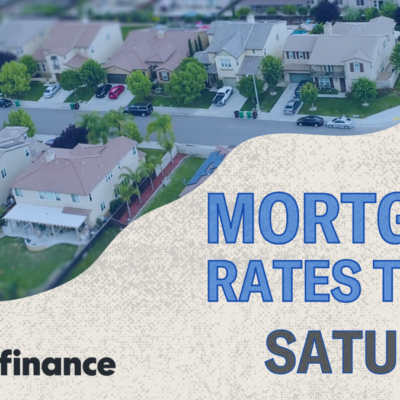BORROWERS can benefit from lower mortgage bills as major lenders slash rates – but with costs set to come down even further, should you fix now or hang on a bit longer?
Barclays, HSBC, Nationwide, NatWest and Santander have all dropped fixed-rates below 4% after the Bank of England dropped the base rate earlier this month.
Fixed-rate mortgages are now at their lowest level in six months, according to data website Moneyfacts.co.uk, but could keep falling.
Monetary policymakers are tasked with keeping inflation running at 2% and use the base rate to do this.
As inflation is expected to keep easing for highs seen from surging energy costs in 2021, markets are pricing in further reductions in interest rates.
These interest rates influence how lenders price mortgages, meaning further decreases will likely see mortgage costs come down further.
With this in mind, should you fix your mortgage now or stay on a variable rate to reap the savings of further rate falls?
Here, we’ve explained what the experts think.
What are the differences between fixed rate mortgages and variable rate?
When deciding between a fixed or variable mortgage, it’s important to understand the differences of each.
Repayments on a fixed-rate mortgage are set at rate from the outset and remain the same throughout the term.
You are locked into the mortgage for the duration of the term, which is most commonly two or five years.
You can usually overpay your mortgage by a maximum of 10% a year, but if you want to repay more or leave the mortgage, you will usually have to pay an Early Repayment Charge (ERC).
These exit fees tend to be worked out as a percentage of the outstanding loan.
For example, on a £200,000 mortgage you may have an ERC of 3% which would work out as £6,000.
On the other hand, variable rate mortgages can see the repayment rate change during the term of a mortgage.
There are different types of variable rate mortgages, each with their own set of terms and conditions. Tracker mortgages are a type of variable rate that usually move in line with the Bank of England base rate.
If the base rate moves down, so does your repayment rate or if it rises, so will your bills.
Variable rates may have a set mortgage terms, such as two or five years, or could be ‘lifetime’ with no end date.
Anyone on a tracker or variable rate mortgage can typically move to a fixed rate without any penalty or far lower exit fees than a fixed rate.
Pros and cons of a fixed rate
One of the biggest benefits of a fixed rate mortgage is that you know exactly how much your repayments will be over the duration of the term.
Nicholas Mendes, technical director at mortgage broker, explained: “A fixed-rate mortgage offers certainty and stability, as it locks in an interest rate for a specific period, ensuring that your monthly payments remain constant regardless of changes in the base rate.
“This predictability makes budgeting easier and provides peace of mind, particularly if you are concerned about potential interest rate increases in the future.”
Nicholas also points out that in the current market, fixed-rate mortgages are generally priced cheaper than tracker mortgages.
Indeed, The average two-year fixed mortgage rate is now 5.58%, and the average five-year fixed rate is 5.22%, according to data website Moneyfacts.
This compares to a typical two-year tracker rate of 5.68%.
The biggest drawback to fixed rates is the lack of flexibility – you can’t move to a better deal if one becomes available without paying the high exit fees.
It means that if the base rate falls further you won’t see any benefit until the mortgage term finishes.
Pros and cons of a variable rate mortgage
The flexibility of variable rates is one of the main upsides of these mortgage deals.
It’s often a better option if you are expecting to move in the near future as you will be able to repay the deal without paying the ERCs.
And if the base rate continues to fall a tracker mortgage will down in line with it.
You can usually choose to lock into a fixed rate at any time if you believe that rates won’t go any lower.
Markets are currently predicting interest rates to keep falling, so there is a real risk that if you lock into a deal for five years, for example, you end up paying much more than if you stay on a tracker rate until rates come down further.
However, this is essentially a gamble as no one knows for sure what rates will do.
If inflation remains high or moves back up for any reason, the bank rate reduction could be delayed or even reversed.
And if they were to go back up, you would have been better off to lock in fixed rates now.
Should you fix?
We asked mortgage professionals to give their view on whether now is a good time to fix.
Most experts we asked agreed fixing now is a good idea for many households – but some warned of the drawbacks.
Here is what they said:
Stephen Perkins, managing director at Yellow Brick Mortgages, said: “Even in the landscape of reducing rates, many borrowers will prefer the safety and predictability of a fixed rate.
“While a tracker rate, which would decrease each time the Bank of England reduces the base rate, may seem appealing, the differential in the rates mean that there would need to be multiple rate reductions just to break even.
“This then becomes too much of a gamble, especially in such a complex economic climate, where there is no guarantees on when or how far rates could drop.”
Mark Eaton, chief operating officer at April Mortgages, added “Long-term fixed rates protect people against economic uncertainty and the ups-and-downs of the markets.
“They allow better financial management, especially as mortgages are often the largest monthly expense.
“Borrowers are increasingly realising that while rates are important, the stability and confidence that come with fixed payments are just as crucial.”
Patricia McGirr, founder at Repossession Rescue Network, said that with the cost of living squeezing households, fixing your mortgage rate is “like putting a padlock on your biggest and most important outgoing”.
“You know what you’ll pay each month with no nasty surprises. Yes, you might miss out if rates drop, but you’re protected if they surge,” she said.
“It’s a smart move in these uncertain times.”
Elliott Culley, director at Switch Mortgage Finance, said: “No one has a crystal ball on where interest rates will end up and, as quickly as they come down, they can go back up.
“Earlier this year showed that. Tracker rates are currently uncompetitive so fixed rates are where borrowers are looking. At the end of day it comes down to your risk appetite.”
And Nicholas Mendes added: “While tracker mortgages offer the potential to benefit from future rate reductions, the current lower pricing of fixed rates, combined with market uncertainty, makes fixed-rate mortgages—especially shorter-term options like a two-year fix—a more appealing choice for most borrowers.
“The balance of cost, security, and potential future flexibility makes fixed-rate mortgages the safer and likely more cost-effective option in the current environment.”
And Ross Lacey, director & chartered financial planner at Fairview Financial Management, said the question is more about how long to fix for than whether to fix.
“The fact is, even when fixed rates were higher, most borrowers in our experience still opted to fix for the security and peace of mind this brings,” he said.
“I think a bigger question is how long to fix for. We’re seeing more borrowers interested in five year fixes now whereas a few months ago many felt that a two-year fix made more sense given the expected direction of travel for interest rates.”
However, Gabriel Mckeown, head of macroeconomics at Sad Rabbit Investments, was less certain that fixing is the right choice for everyone.
“The UK economy still faces uncertainties, including potential inflationary pressures and broader geopolitical tensions,” he said.
“So, while the base rate has been reduced, further cuts may be on the horizon, and fixing today could mean missing out on lower rates in the future.
“In an era of economic flux, the decision to fix a mortgage is as much about personal circumstances as it is about market conditions.”
If you are coming to the end of a fixed rate mortgage, you usually have six months at the end of the deal where you can essentially move on to a new rate without any penalty.
This means you can get a mortgage offer six months before the end of the deal and take the deal if rates have not fallen any further with, for example, a month to go.
Or, you can apply for a new deal if rates have dropped further over that time.
An independent mortgage broker can research the whole market for you, helping you to find the best value deal that suits your individual circumstances.
How to get the best deal on your mortgage
IF you’re looking for a traditional type of mortgage, getting the best rates depends entirely on what’s available at any given time.
There are several ways to land the best deal.
Usually the larger the deposit you have the lower the rate you can get.
If you’re remortgaging and your loan-to-value ratio (LTV) has changed, you’ll get access to better rates than before.
Your LTV will go down if your outstanding mortgage is lower and/or your home’s value is higher.
A change to your credit score or a better salary could also help you access better rates.
And if you’re nearing the end of a fixed deal soon it’s worth looking for new deals now.
You can lock in current deals sometimes up to six months before your current deal ends.
Leaving a fixed deal early will usually come with an early exit fee, so you want to avoid this extra cost.
But depending on the cost and how much you could save by switching versus sticking, it could be worth paying to leave the deal – but compare the costs first.
To find the best deal use a mortgage comparison tool to see what’s available.
You can also go to a mortgage broker who can compare a much larger range of deals for you.
Some will charge an extra fee but there are plenty who give advice for free and get paid only on commission from the lender.
You’ll also need to factor in fees for the mortgage, though some have no fees at all.
You can add the fee – sometimes more than £1,000 – to the cost of the mortgage, but be aware that means you’ll pay interest on it and so will cost more in the long term.
You can use a mortgage calculator to see how much you could borrow.
Remember you’ll have to pass the lender’s strict eligibility criteria too, which will include affordability checks and looking at your credit file.
You may also need to provide documents such as utility bills, proof of benefits, your last three month’s payslips, passports and bank statements.







